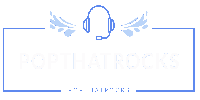Keyword research
Keyword research is an integral component of SEO strategies, helping to identify keywords and phrases used by your audience to search online for information, products, or services. By aligning content and websites to meet audience needs and desires more successfully, keyword research enables increased targeted traffic and conversion rates. Check out the Best info about Google Blog Network.
Utilizing various keyword research tools can be helpful in pinpointing key search terms that match up with your content strategy and developing a list of potential search terms. They also enable you to assess competition and value per keyword by examining metrics like search volume, competitiveness, and conversion potential. Once completed, be sure to implement results into content strategies while tracking performance over time.
Keyword research can provide valuable insights into your audience’s interests and behaviors, providing an opportunity for content marketing efforts such as writing blog posts or optimizing site pages to cater directly to them. Furthermore, keyword research allows businesses to tailor products or services specifically to fit their target market’s demands.
To conduct adequate keyword research, you must understand the context of each search term. For instance, if your target audience is searching for information on improving social media engagement, write blogs and guides focused on this subject – this will allow your website to rank well in search engines while drawing qualified visitors to it.
On-page optimization
An effective on-page SEO strategy can help your site achieve high rankings and more traffic, but the process may take some time if optimizing multiple web pages. A solid on-page optimization strategy should include an audit of site performance, keyword tracking, competitor analysis, and regular updates to account for search engine algorithm changes. Read the Best info about Google Blog Network.
What is on-page SEO? On-page SEO refers to optimizing individual pages of a website in terms of its content and other elements, unlike off-page SEO, which focuses on external factors (backlinks). Examples of on-page optimization may include optimizing title tags, meta descriptions, keyword density, internal linking structures, page load speeds, and content relevance.
On-page optimization is especially crucial for local businesses that must compete against similar ones in their local area. Not only can it use keywords in the URL and title tags to optimize for Google visual search results, but on-page optimization can also create structured service directories that help customers locate information they require quickly.
While prescriptive techniques like using exact-match keywords multiple times still play an important role, what’s most crucial is making sure your content satisfies user intent behind search queries. That means your content should contain synonyms, LSI keywords, and an acceptable level of repetition.
Link building
Link building is an integral component of any SEO campaign, as it establishes trust and authority between websites or pages and their visitors, increasing search engine rankings in turn. But link building is just one component of an effective SEO strategy; to realize its full benefits, you must combine these elements with quality content creation, research, website maintenance, and management for maximum impact. Learn the best info about Google Booster.
Successful link-building campaigns begin by creating content that draws in readers from other websites and individuals to link back. To do this, focus on producing useful, unique material tailored specifically for your target audience, prioritizing those pages that offer you the highest return on investment and prioritizing all valuable pages within your website that offer you greater returns than others.
Content marketing, outreach, and guest posting are popular ways of building links; however, these strategies require considerable time and resources to succeed. To make sure your efforts are productive, set specific goals for each campaign as well as track its progression over time to see its results; you can do this by monitoring domain authority (DA) or looking at organic traffic levels for specific pages on your site.
Analytics
Analytics are an integral component of SEO reporting and can be undertaken either individually or as a team using cutting-edge software. Analytics involves recognizing data patterns and providing insights for more informed decision-making; additionally, profiling and cleaning tasks to ensure accurate information is used are carried out as part of this process; additionally, data governance policies should also be adhered to during this phase.
SEO analytics can provide invaluable insight into where content needs to be optimized and user experience enhanced while simultaneously highlighting website weaknesses that may be impeding SEO efforts. For instance, an analysis might reveal a page has an excessive bounce rate and suggest fixing these issues to boost conversions. Likewise, analytics can identify keyword opportunities as well as give feedback about mobile user experience.
A top analytics solution will transform data into visual presentations that are easy for clients to interpret while also permitting data mashups that create unique insights. Ideally, self-service should be possible without needing IT assistance – giving all team members access to crucial information they need quickly for making informed decisions under changing conditions while decreasing bias that undermines decision-making effectiveness.


